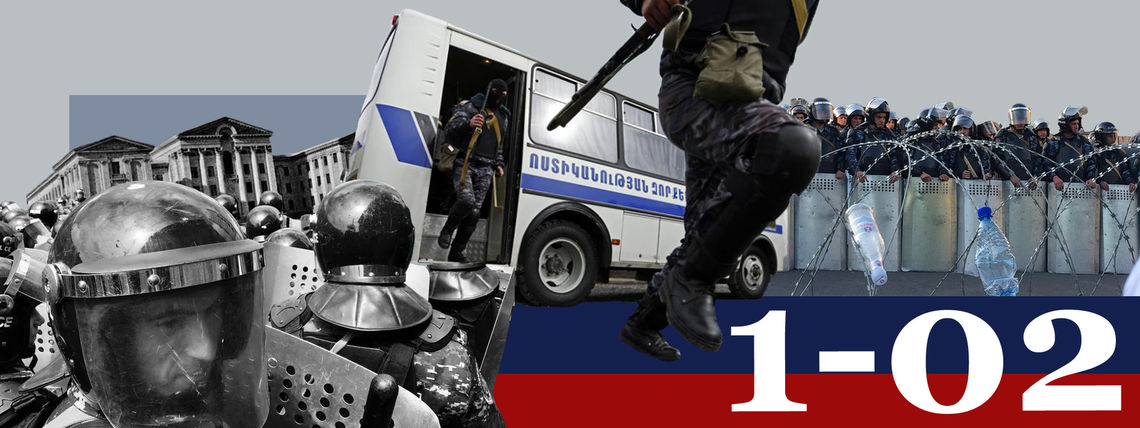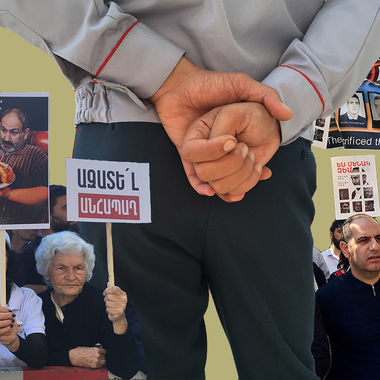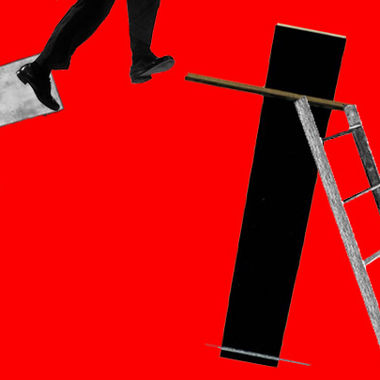Preface
Revolutions, as a rule, are the expression of public demand for radical and fundamental changes. The 2018 Velvet Revolution in Armenia, in this sense, was no exception. It produced a valid expectation of revolutionary changes at all levels of public life. Considering that, before the revolution, law enforcement was viewed by many as a tool for the ruling class to maintain their position, rather than a guarantor of the rule of law, this institution was seen as ripe for reform.
When talking about the law enforcement system, special focus should be put on the Police. In post-revolutionary Armenia’s public discourse, this state institution is one of the most talked about, as it most visibly stood at the frontline facing protesters who were demanding their constitutional rights. Thereby, the public has serious expectations for the Police’s role in establishing fairness and justice.
But are the public’s expectations reflected in the package of Police reforms and the philosophy of the country’s new political leadership?
The strategy on reforms in the Police and the resulting action plan was published on February 10, 2020. This article, the first in a series, aims to discuss the changes made to the system before the new strategy was published. It also presents the importance of systematic and radical reforms more comprehensively.
In the next article, we will cover the newly published strategy, and the document’s main points and omissions. We will try to understand whether solutions are offered to the problems that the strategy should have addressed.
Promises and Programs
First, it must be noted that, despite public demand, the My Step Alliance’s election platform did not include substantial references to reforming law enforcement. The platform mentioned only two superficial changes: First, it proposed establishing a patrol service, based on the Road Police, that would perform traffic and public safety functions. Second, it proposed a demerit point system to record traffic violations. The absence of more comprehensive reform strategies is somewhat strange because many leaders of the My Step Alliance, including Prime Minister Nikol Pashinyan, had fought against the illegal activities of the law enforcement system for the last decade and repeatedly called out its institutional stagnation.
The picture is more worrying in the government program. There is no reference at all to police reforms—the word “police” is mentioned only once in the program. In this sense, the steps by the government and the parliamentary majority to reform this system remain unpredictable for the public.
Steps Taken
Almost two years have passed since the revolution and one year since the My Step Alliance formed a majority in parliament through early parliamentary elections. Let’s analyze four steps that have been taken, which have been the subject of much public debate and public outcry.
1. The first serious change was the Prime Minister’s decision that internal police forces would also protect Armenia’s state border. According to this decision, internal police forces are now performing military duty on the country’s northeastern border with Azerbaijan. The public accepted this decision with great enthusiasm, viewing protected borders as a desirable output for the resources invested in the Police.
2. On the orders of Arman Sargsyan, the Acting Head of Police, the departments of Organized Crime and Criminal Investigation were merged into one organizational entity. This change must be viewed in the context of the police reform strategy package that former Deputy Police Chief Hovhannes Kocharyan would regularly speak about at public forums. Unfortunately, the package is not publicly available. On the official police website, under “Work Accomplished” in the Reforms section, the last public report was published in September 2017. In the Programs section, the last notice was published in 2013 and refers to reform programs in 2013–2014.
It’s noteworthy that this decision to combine the two departments elicited concern among experts and former police officers, who specifically mention that there was no overlap between these two departments; in fact, they complemented each other, and, in this sense, their integration for the purpose of optimization was not the right decision.
3. At the end of the year, upon the initiative of several My Step MPs, the National Assembly passed a bill giving Police the right to monitor phone conversations without having to first go through the National Security Service (NSS), as was the case in the past. They still need to get a court order to do so, however, for intelligence purposes.
There was a general outcry among the population about giving police such sweeping powers and activists, who had always been on the frontlines and had fought against the previous authorities, were particularly incensed. Prior to the passing of the bill, the Police had already been monitoring phone conversations, but by first applying to the NSS. The bill gives Police permission to do so in the fight against grave and particularly grave crimes.
A different group of critics approached the issue from another perspective: To what extent is it justified to give this kind of power to a police system not yet subjected to any real reform? And secondly, were there no other priorities, such as the freedom from unreasonable search and seizure, in this area? These questions, unfortunately, are still pending.
4. A demerit point system for drivers who commit traffic violations has been actively discussed in recent years. Taking into account the rapid growth in fatalities from traffic accidents and the fact that it was included in the My Step 2018 election platform, this idea was once again circulated and on December 9, parliament adopted the corresponding bill. As of January 1, 2020, besides paying fines (which have been raised substantially with the bill), drivers violating traffic regulations will also be punished with demerit points [each driver receives nine points, and if a traffic violation is recorded, points are taken away. Once a driver loses all points, they temporarily have their license suspended]. The new system, which was very quickly christened the “ratingayin” system, has a very important mission: to make the country’s roads safer. Nevertheless, the demerit point system was also met with tough questions from industry representatives and citizens:
-
When a traffic fine is generated from any one of the multitude of cameras that have been placed throughout the city and country, in order to protect the privacy of the driver and his/her passenger, the windshield of the car is blacked out. Thereby, there is no available tool or monitoring system that can determine who exactly is behind the wheel of the car and thereby, who in fact should be fined and have their demerit points reduced. What happens is that the driver, under whose name the car is registered, is automatically fined. If you’ve been fined and have had demerit points reduced, yet you were not the driver at that moment, you can ask the person who was driving your car to apply to police.am and claim that fine, thus his demerit points will be reduced.
This has led to a shrewd practice among some drivers; ads selling demerit points very quickly appeared online. Thus, with some financial compensation a terrible driver can constantly buy points and thus not get rid of their license.
-
There was the impression that the philosophical basis of this bill, especially in post-revolutionary Armenia, besides making the roads safe, should also have alleviated citizens’ burden. What in fact happened was that not only were fines increased, but a demerit point system was introduced. If fines had decreased [many considered them to be high compared to the average income] instead of increased, it would have sent a clear message that the government’s aim was not to add to the budget by placing greater burdens, oppressing if you will, citizens.
-
And finally, the legal gap: a citizen is punished twice for the same offense, which, from a legal point of view is, to put it mildly, assailable.
Unfortunately, in this case, too, concerns were not properly addressed.
Conclusion
The aforementioned four reforms, regardless of how good or bad they are, whether they are acceptable or not, were implemented in a fragmented fashion, aimed at solving specific problems without fitting into the overall logic of recovering the system. Moreover, police actions are essentially reactive; meanwhile, in ensuring public safety, according to the Law on the Police, the most important function of the police is crime prevention.
More importantly, the Police continues to be staffed by individuals that played either an active or passive role in the corruption schemes of the former ruling party, including supporting electoral fraud and in particular, using excessive force when dispersing protesters during the events of March 1, 2008, for which the Special Investigative Committee launched a criminal case back in 2018.
It is in this context that the prime minister’s speech at the government session in December 2019, should be considered, when he said that the fight against corruption in Armenia after the revolution is happening in spite of the law enforcement system.
All those who served the former regime by oppressing citizens do not share the values and aspirations of post-revolution Armenia, in fact they are opposed to the fundamental tenets that were espoused during the revolution itself. And it is for this reason, that today, many crimes - from pickpocketing to murder - are not being disclosed or prevented by the police force.
The police structure must be cleansed, it must go through painful reforms and this can be done only with a leadership that has not served the interests of the former regime, that has not oppressed the rights and the will of citizens.
In this respect, the bill presented by the Bright Armenia parliamentary faction was very important. Armenian law requires that the Chief of Police or the leader of the National Security Council be high-ranking career officers. Bright Armenia’s proposal would allow the appointment of individuals who had not risen through the ranks of either of these security agencies, perhaps laying the groundwork for genuine reform. The bill, however, was voted down by the parliamentary majority.
also read
On the Use of the Army in Suppressing Protests in Armenia in March 2008
By Sossi Tatikyan
While Armenia’s second President Robert Kocharyan’s trial continues, Sossi Tatikyan writes about the need to amend relevant provisions of the Constitution to delineate the distinct responsibilities of the army and internal security forces, and to ensure checks and balances when declaring a state of emergency.
On the Elaboration of Armenia’s New National Security Strategy
By Sossi Tatikyan
Armenia is set to have a new National Security Strategy. The current strategy, adopted in January 2007, had all the necessary components, but was outdated and remained a largely superficial and declarative document as many of the defined values and principles were not fully respected or promoted.
Armenia Gets Serious About Reforms: Making Sense Out of Vetting
By Nerses Kopalyan
As an instrument of transitional justice, vetting is designed to “cleanse” state institutions that are tainted by systemic corruption, nepotism, and incompetence. Vetting of personnel is the first step toward the broader goal of institutional reform, writes Dr. Nerses Kopalyan.
Matthew Torigian, Distinguished Fellow of the Munk School of Global Affairs and Public Diplomacy at the University of Toronto and Director of Global Policing Initiatives at the Global Justice Lab speaks with EVN Report's Maria Titizian about his career in law enforcement and politics and forging relationships between Armenia and the Munk School. Torigian is also working on a collaboration with the Zoryan Institute on matters involving human rights and police related seminars.









EVN Report welcomes comments that contribute to a healthy discussion and spur an informed debate. All comments will be moderated, thereby any post that includes hate speech, profanity or personal attacks will not be published.